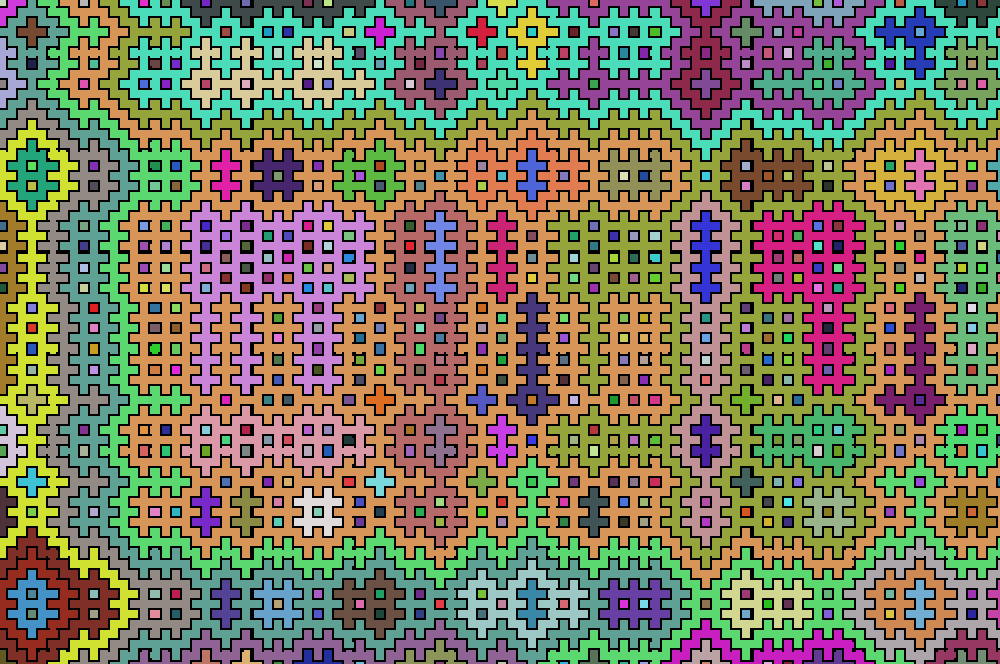Wolfram Function Repository
Instant-use add-on functions for the Wolfram Language
Function Repository Resource:
Generate a Hitomezashi stitch pattern
ResourceFunction["HitomezashiStitchPattern"][{x1, x2, x3, …}, {y1, y2, y3, …}] returns the lines of a Hitomezashi stitch pattern based on the Boolean values xi and yi. | |
ResourceFunction["HitomezashiStitchPattern"][n,m] returns the lines of a Hitomezashi stitch pattern based on the integers, reals, or strings n and m. |
Create simple Hitemezashi pattern:
| In[1]:= |
| Out[1]= |  |
Visualize it:
| In[2]:= |
| Out[2]= |  |
Use integers rather than a list of booleans:
| In[3]:= |
| Out[3]= |  |
Use real numbers instead:
| In[4]:= |
| Out[4]= |  |
Use strings instead:
| In[5]:= |
| Out[5]= |  |
Create a zig-zag pattern:
| In[6]:= |
| Out[6]= |  |
Nothing might be returned if the input is too short:
| In[7]:= |
| Out[7]= |
Invalid input will return an empty line:
| In[8]:= |
| Out[8]= |
Non-True objects are turned into False using TrueQ:
| In[9]:= |
| Out[9]= |  |
Create some simple patterns:
| In[10]:= | ![GraphicsRow[
Map[Graphics, {ResourceFunction["HitomezashiStitchPattern"][
ConstantArray[{True, False}, 10] // Flatten, ConstantArray[{True, False}, 10] // Flatten], ResourceFunction["HitomezashiStitchPattern"][
ConstantArray[{True, False}, 10] // Flatten, ConstantArray[{False, True}, 10] // Flatten],
ResourceFunction["HitomezashiStitchPattern"][
ConstantArray[{True, False}, 10] // Flatten, ConstantArray[False, 20]], ResourceFunction["HitomezashiStitchPattern"][
ConstantArray[True, 10], ConstantArray[True, 10]]}, {1}]]](https://www.wolframcloud.com/obj/resourcesystem/images/5f8/5f82de19-008a-47a5-8942-ca6cffbc5562/69b320008669fb71.png) |
| Out[10]= |  |
Create a random pattern and color it in:
| In[11]:= | ![p = ResourceFunction["HitomezashiStitchPattern"][
RandomReal[{0, 1}, WorkingPrecision -> 30], RandomReal[{0, 1}, WorkingPrecision -> 20]];
Rasterize[
Graphics[p, ImageSize -> 250, PlotRange -> CoordinateBounds[p[[1]], -0.5]], "Image", ImageResolution -> 144] // MorphologicalComponents // Colorize](https://www.wolframcloud.com/obj/resourcesystem/images/5f8/5f82de19-008a-47a5-8942-ca6cffbc5562/548b7780bf6dbc23.png) |
| Out[12]= |  |
This work is licensed under a Creative Commons Attribution 4.0 International License